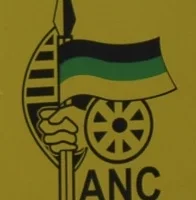It’s hard to imagine U.S. foreign policy in East Asia without its closest partner and ally in the region: Japan. Yet relations between the two allies have not always been close nor has their shared history been without its crises. While it may seem that the alliance between Japan and the United States has always… Read More "Restoring Trust and Preserving the U.S.-Japan Alliance: The 1995 Okinawa Rape Incident"
Administering the First Dosage of Penicillin in Brazil: Contributions of a Foreign Service Spouse
Few get the chance to leave their mark as a record holder. Beatrice Bishop Berle certainly did just that. In the mid-1940s, Beatrice Bishop Berle administered the first dose of penicillin in Brazil’s history. Her husband, Adolf Berle, Jr., was the U.S. Ambassador to Brazil from 1945–1946. Spouses of ambassadors play a considerable role in… Read More "Administering the First Dosage of Penicillin in Brazil: Contributions of a Foreign Service Spouse"
When William Lacy Swing left Port Elizabeth, South Africa in 1966, he vowed to never return until the end of Apartheid. Twenty-three years later, Swing did just that, returning to South Africa as the United States ambassador. Thanks to the relationships he had formed early on in his Foreign Service career, especially throughout his time… Read More "From Vice-Consul to Ambassador: The Story of William Swing’s Return to South Africa"
Life as a Diplomatic Courier: Connecting China to the World
Have you ever wondered what it would be like to jet off across the world continent-to-continent at a moment’s notice? Before the days of instant electronic communications, the role of a diplomatic courier would be to deliver classified information back and forth as quickly as possible. Earl Kessler was a diplomatic courier stationed in Shanghai… Read More "Life as a Diplomatic Courier: Connecting China to the World"
The “Leaky Bucket”—Brazil and the Cuban Missile Crisis
In the early 1960s, President John F. Kennedy sought to maintain an open dialogue with Brazil with the intent to create an intermediary in communications with Fidel Castro in Cuba. However, the troubled U.S.-Brazil relationship was riddled with distrust and hidden motives. In particular, the Brazilian president at the time, João Goulart, was infamous for… Read More "The “Leaky Bucket”—Brazil and the Cuban Missile Crisis"
Women Working Together to Rebuild Liberia after the Civil War
The Liberian Civil War was doubtless one of the most devastating conflicts in recent history. Spanning from 1989 to 2003, an estimated 250,000 Liberians were killed during the war, and countless more were victims of atrocities. Liberia was founded in 1820 by freed enslaved people from the United States and Carribean, and had long struggled… Read More "Women Working Together to Rebuild Liberia after the Civil War"
“I Get It:” Experiential Learning in Ecuadorian Narcotics Control
In the late eighties, drug trafficking into the United States from Latin America came into the spotlight with Reagan’s War on Drugs, a global campaign led by the United States aiming to reduce the illegal drug trade. 1986 saw President Ronald Reagan declare drug trafficking a national security threat, immediately amplifying national attention and resources… Read More "“I Get It:” Experiential Learning in Ecuadorian Narcotics Control"
Of Labor Parties and Movements Across the Atlantic
World War II brought great uncertainty in its aftermath. The rise of Anti-Right and Anti-Left wing movements, for example, contributed to the hegemonic battle between the United States and the Union of Soviet Socialists Republics. These events, in turn, had an effect on labor. Following the Second World War, the United States launched the European… Read More "Of Labor Parties and Movements Across the Atlantic"

